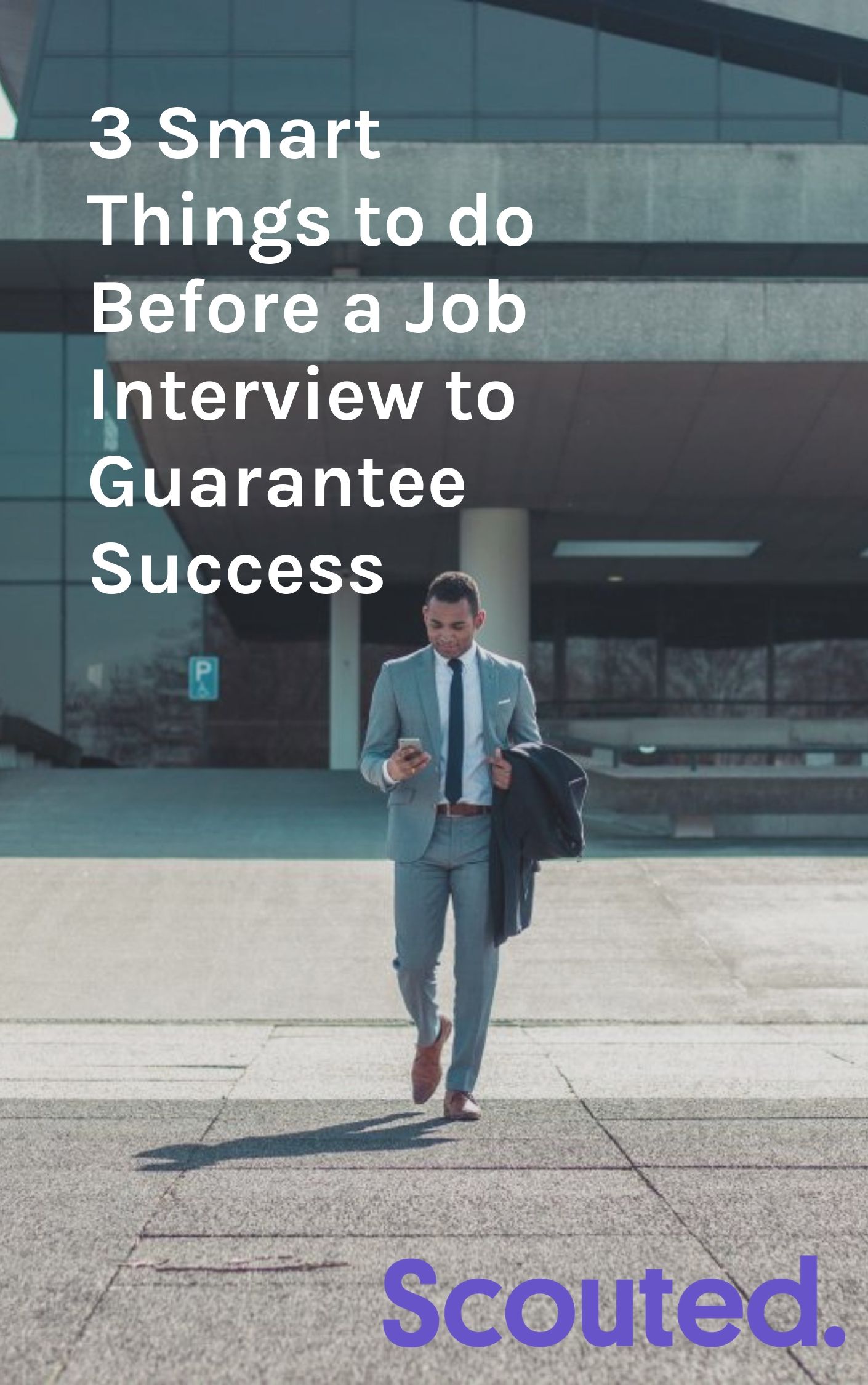If you were given 3 wishes before a job interview (and you weren’t allowed to wish to skip it), what would you wish for? Our guess is that you’d wish:
-
To be completely prepared,
-
To knock the hiring manager’s socks off,
-
And for 0 awkward silences.
Well, your wish is our command!
There’s just one catch.
You have to read this blog post to learn how to get those things and completely ace that job interview. Deal?
Have at it.
Update your LinkedIn profile with work examples and endorsements
The best way to start preparing for a job interview is to nurture and build your network before you need it. If a company asks for your LinkedIn profile on a job application, you don’t want to feel sheepish while providing the URL because you only have 3 connections and one of them is that cousin who looks relatively successful. College is a great place to find lots of connections and endorsements! If you’re on good terms with your past managers, ask them to endorse you. A+ if you’re able to get a previous employer, past professor, volunteer supervisor, or freelancing client to write you a shining review that you can include in your profile description! Nowadays, people always read the review before buying a product and a few extremely positive reviews on your LinkedIn profile can make a big difference.
Beside getting excellent endorsements and reviews, LinkedIn is a great place to show off some of the sample work we’ll talk about later. There’s a chance you won’t know who’s interviewing you until the day of, but they may certainly get the chance to look you up beforehand. Give yourself an advantage by showing them you’d be a rockstar candidate before even opening your mouth. In your LinkedIn profile, add links to past work pieces that you’re proud of or compiled metrics that show how you were able to help a company grow within your sphere of influence.
You may also want to take a minute to look over that job description again. Find keywords, phrases, and possibly even experience that you think will be important to the hiring manager and reference it throughout your bio and job experience section. When you walk into your job interview, you’ll know that they know you’re the perfect fit for the job.
Prepare your own questions
A great mindset to have when going into a job interview is that it’s not an interview at all, but more like a consultation. Pretend you’re a freelancer in the role you’re applying for and the company you hope employs you is the client. You know they’re hiring because they have a need and you know the company also has goals. Of course, at this point you’ve already done a fair share of research on the company and you also have a good understanding of what someone in your role would typically do. To take it a step further, you research the company’s competition and what someone in your role at that company is doing or what they’re putting their money into or who they’re marketing to. You might even research new trends that are happening in the company’s industry or in areas that affect your role/department.
Once you have all this information, it’s time to make a game plan. See, if you want to communicate to a hiring manager that you’re worth it, don’t just tell them that you can help, show them how. Don’t show up to an interview empty-handed. Although an interview is a two-way conversation, you’ll at least want to know what you can bring to the table and how you would improve the company if given free rein. This won’t only show that you’re prepared (like, a lot) but also that you’re valuable and you’ll hit the ground running if given the job.
Now, you did your research and you have your (flexible) game plan, but a big part of being a freelancer involves listening, too. Through your research, you’ve discovered some areas that could use improvement, but where does the company think they need to improve? What have they struggled with in the past? Who do they say their target customer is? Their competitors? This is where a notebook and pen will come especially in handy. Come with your questions written and leave with more writing on the page than when you walked in.
Provide sample work
What are employers looking for when they sift through possibly hundreds of resumes? What do they really want?
Someone who can do the job.
If an employer truly knew that the guy who had 3 years work experience was way better at doing X than the guy with 7 years job experience, they’d hire guy number 1 in a heartbeat. Skills and talent will always give you a one up on your competition. But how the heck do you communicate that you’re the better candidate on a resume when the numbers are against you?
Remember that whole freelancing mindset we talking about? Well, this is kind of like that except in this version you’re pretending you’ve already been hired.
Raghav Haran writes an awesome article on how he used pre-interview projects to get hiring managers to do a double-take and step into interviews with an extremely thorough game plan. By narrowing down a specific job he wanted to apply (and be interviewed) for, he was able to outline key responsibilities that job would have. Then, he actually did those things on his own time, created a detailed analysis and report of the product of his work, found the right person to get the report in front of, and sent it in.
#hired
In short, being able to provide real-life work examples from past experience or ventures of your own is a great way to show an employer that you can do the job they need done. The great thing about this is it makes the number of years of experience under your belt matter a whole lot less and gives you a foot in the door when, before, you may have been filtered out by an automated resume screening process. You’ll also get an excellent chance to stand out from the competition because your sample work will be different from any other candidates’, should they choose to provide any at all.
Have you ever impressed a hiring manager? What did you do and how did it make the rest of the interview process go? Share your thoughts in the comments below and remember to share the love! Or just repost this on Facebook.










